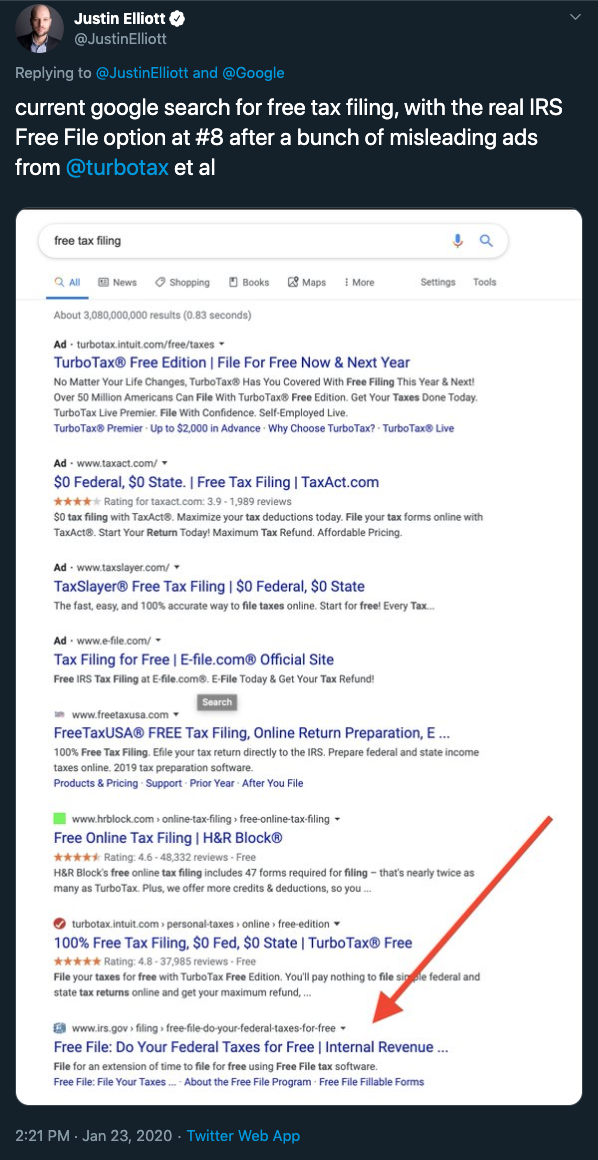Learning how to use a search engine, and understanding how it works, is an essential skill for every fact-checker—and just about everyone. So when searching for reliable information online, you must be vigilant.
Search engines are often funded by online advertising, with advertisers paying for their content to appear adjacent to top search results. Google recently rolled out — and later back-pedaled on — several design changes that impacted readers’ abilities to discern between ads and organic search results.
For example, take a common search you might perform: free tax filing.
When searching for “free income tax filing” in the United States, consumers are faced with numerous paid ads and organic results for commercial offerings before seeing the “Free File” option by the Internal Revenue Service (IRS), a free option provided by the federal government.
ProPublica Reporter Justin Elliot demonstrated on Twitter that IRS option was “at #8 after a bunch of misleading ads” in his Google Search results for “free tax filing.”
In the screenshot above, the first four results are advertisements, paid for by companies to get their information to show up in your search results, and the rest are considered organic results.
The government’s free file option appears as the eighth overall result and fourth organic result; the rest of the results are pushing commercial offerings. If you are searching on your phone, you might have some scrolling to do before you get to the government option, and that “free” commercial option might not be as “free” as you expected.
We learned from Elliot’s ProPublica reporting in 2019 that commercial services like TurboTax hid their own “free file” offers from appearing in Google search results, sending consumers on a path towards their paid products. The company behind these services stopped the practice after it came to light, but it illuminated another important understanding about search engines: The result you really need might not appear in the search results at all.
See also:
4 Quick Tips for Avoiding Misinformation in a Pandemic
This page is part of an ongoing effort by the Snopes newsroom to teach the public the ins and outs of online fact-checking and, as a result, strengthen people's media literacy skills. Misinformation is everyone’s problem. The more we can all get involved, the better job we can do combating it. Have a question about how we do what we do? Let us know.

